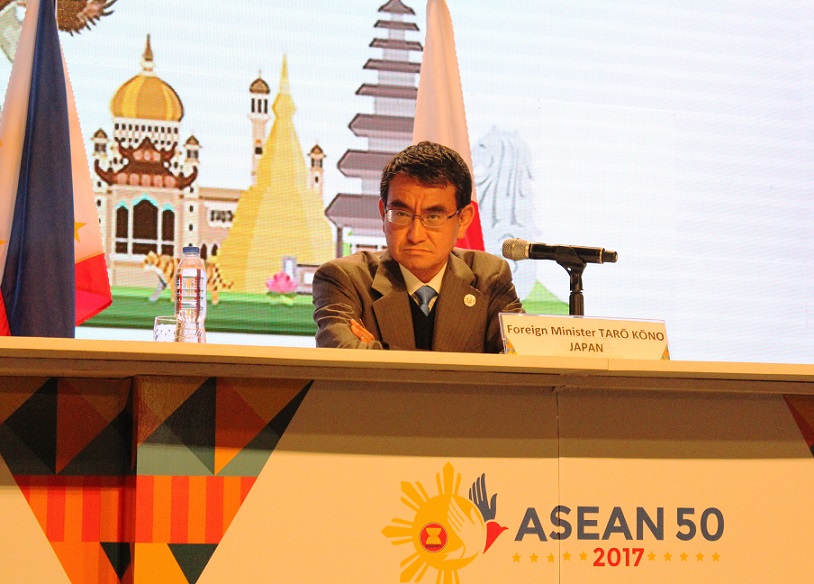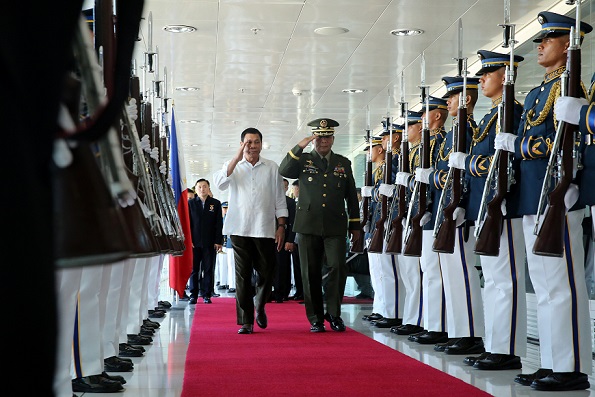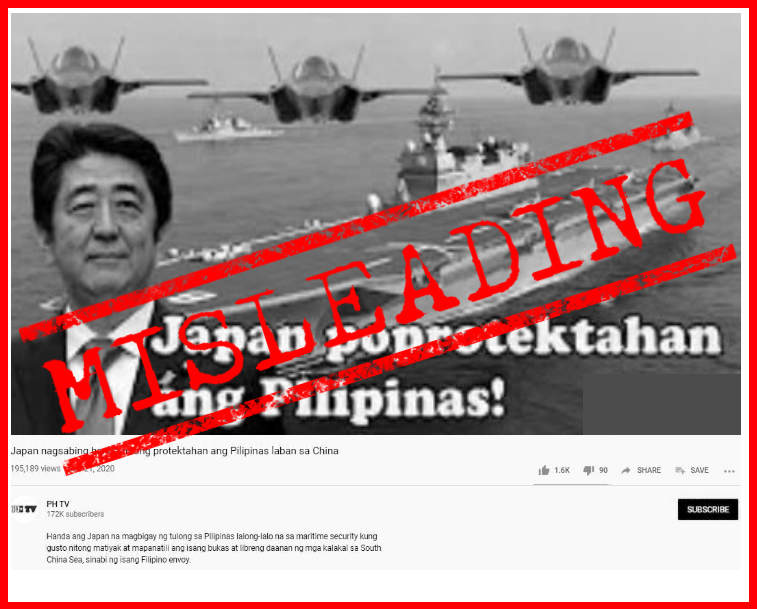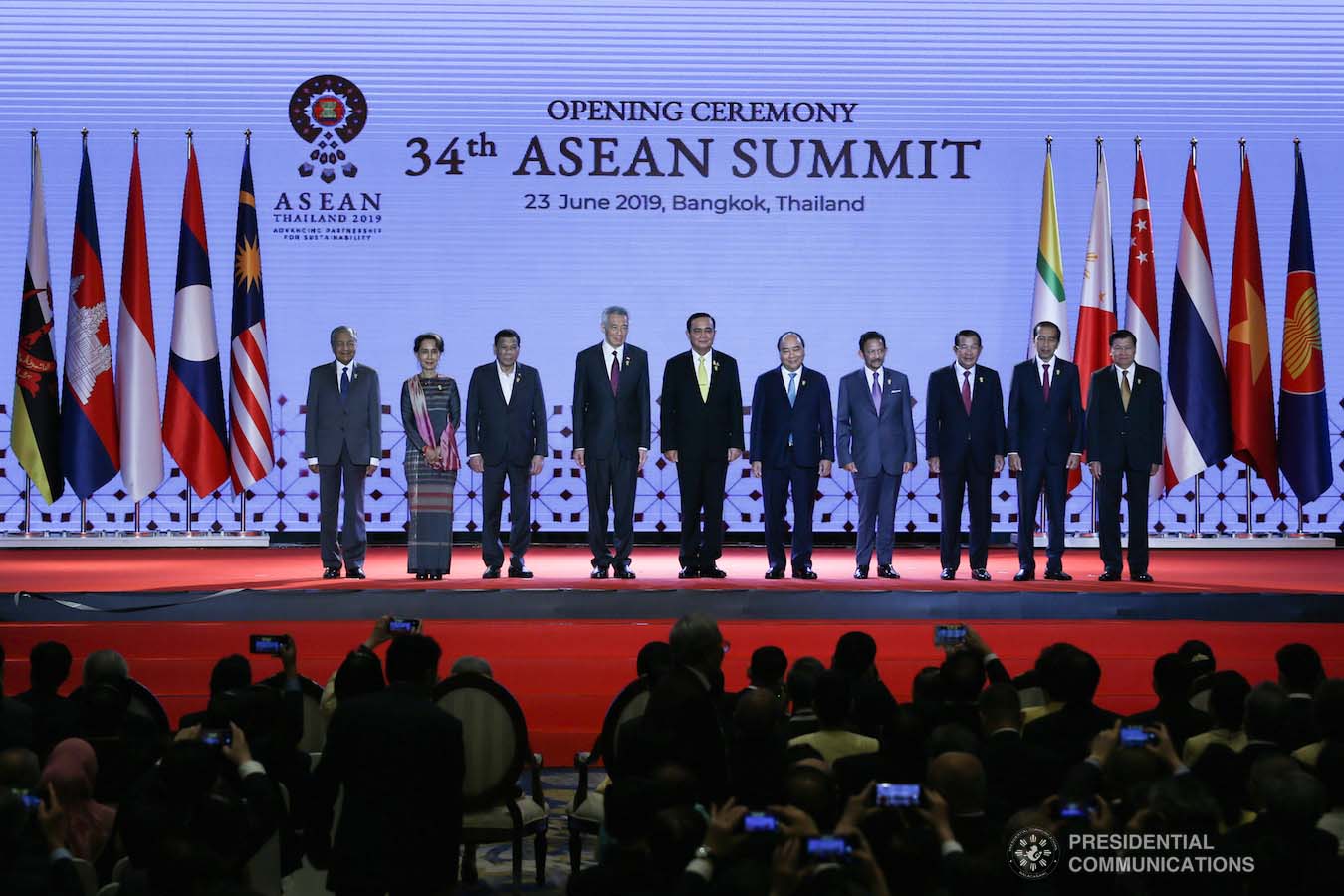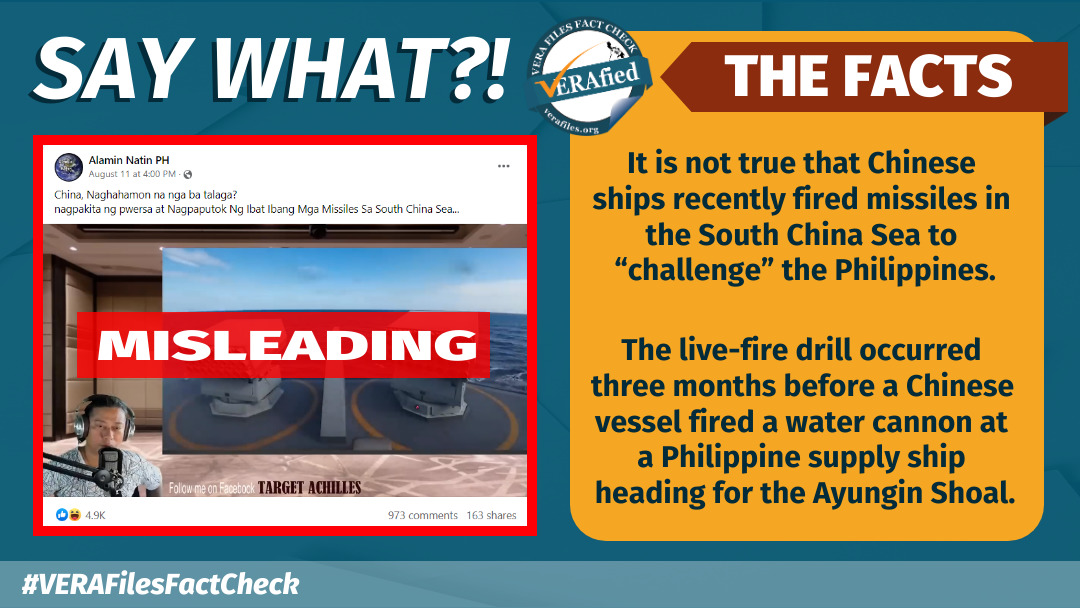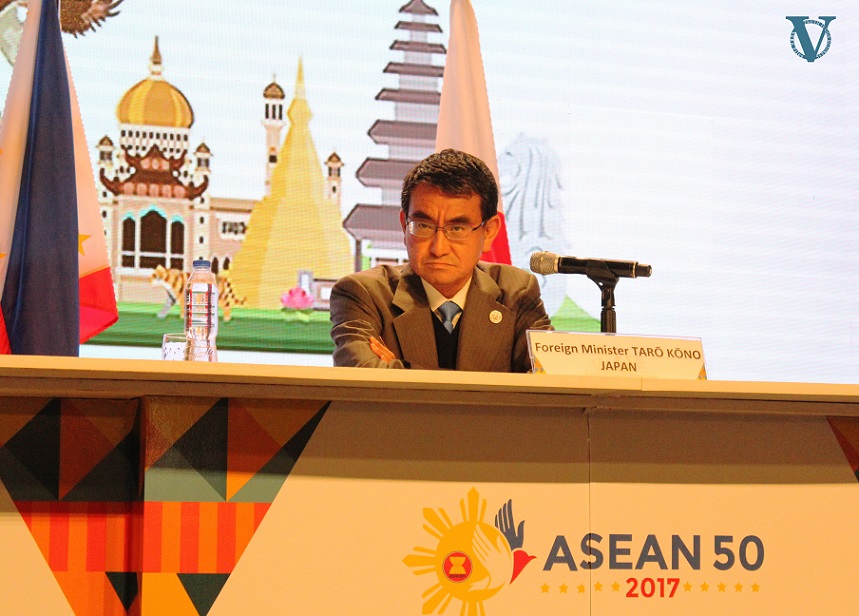
Japanese Foreign Minister Taro Kono in a press conference in Manila. Photo by Arianne Christian Tapao.
What the
Association of Southeast Asian Nations (ASEAN) foreign ministers dared not
mention, their three dialogue partners did.
Foreign ministers of Japan, Australia and the
United States in a joint statement
Monday called on the Philippines and China “to abide by the Arbitral Tribunal’s
2016 Award in the Philippine-China arbitration, as it is final and legally
binding on both parties.”
This is in contrast to the ASEAN ministers’ joint communique
that made no mention of the 2016 Arbitral Tribunal decision, which ruled that
China’s all-encompassing nine-dash line is not valid, nor is there legal basis
for China to claim historic rights to resources within the sea areas within the
line. (See PH wins: Arbitral court invalidates China’s 9-dash line)
But in a media briefing, Philippine Foreign Affairs
spokesperson Robiesperre Bolivar said the joint statement “contains the same
principles that ASEAN adheres to,” adding that the Arbitral Tribunal decision
will be implemented at the “proper time.”
In item no. 4 of the joint communique issued on
Sunday, the Asean Foreign Ministers reaffirmed their commitment to peaceful
resolution of disputes with “full respect for legal and diplomatic processes,
without resorting to the threat or use of force, in accordance with the
universally recognised principles of international law, including the 1982
United Nations Convention on the Law of the Sea (UNCLOS).”
The joint statement of the three partners also
urged the ASEAN members and China to implement the 2002 Declaration on the Conduct of Parties in the South China
Sea (DOC).
China’s foreign minister Wang Yi had earlier
said it will only adopt the three-step negotiations on the Code of Conduct “if
there is no major disruption from outside parties.”
Bolivar said the trilateral joint statement is a
reiteration of the same principles agreed upon by the ASEAN “so we don’t see
dissonance between what they said and what ASEAN already said.”
Meanwhile, the ministers also urged ASEAN
members to “maximize pressure on North Korea,” strongly condemning the rogue
state’s “unlawful pursuit of a nuclear weapon program and unprecedented
ballistic missile activity since last year.”
ASEAN ministers on Sunday reiterated their grave
concerns over Pyongyang’s missile launches and nuclear tests that seriously
threaten peace, security and stability in the region.
But this did not sit well with North Korea,
which on Monday was reported to have told ASEAN members they were not “morally qualified”
to tackle Pyongyang’s nuclear program as they ignored the “hostile policy and
nuclear threat” that Washington has imposed on them.
In a Monday evening press conference, foreign
minister Taro Kono insisted that in various multilateral meetings he had attended,
there was “almost consensus” among the countries that resolutions such as the
United Nations Security Council resolution must be implemented.
This, after Washington has called for North Korea’s
isolation in contrast to ASEAN’s stand to engage the rogue state. (See ASEAN to still engage North Korea amid US call for
isolation)
The ministers also expressed concerns regarding
the recent attacks by the ISIS-affiliated groups in Marawi City.
“The Ministers urged increased cooperation in
the region to counter such terrorist activity and pledged their continued
support for these efforts,” the statement said.
